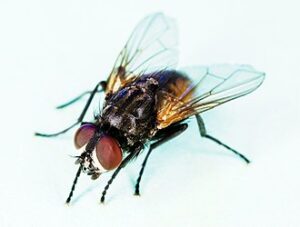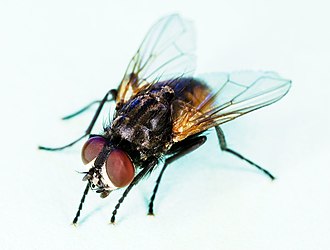Flies: More Than Just a Nuisance – Their Crucial Role in the Zimbabwean Ecosystem
 Flies. They buzz around our heads, land on our food, and generally make us feel uncomfortable. But these often-annoying insects play a surprisingly vital role in the intricate web of life within the Zimbabwean ecosystem. While some may consider them pests, understanding their role is crucial for appreciating the delicate balance that sustains our environment.
Flies. They buzz around our heads, land on our food, and generally make us feel uncomfortable. But these often-annoying insects play a surprisingly vital role in the intricate web of life within the Zimbabwean ecosystem. While some may consider them pests, understanding their role is crucial for appreciating the delicate balance that sustains our environment.
A Diverse World of Flies:
Zimbabwe is home to a remarkable diversity of fly species, encompassing over 15,000 species. This includes the ubiquitous housefly (Musca domestica), along with a plethora of other flies, each playing a unique role in the ecosystem.
Decomposers and Recyclers:
One of the most crucial roles of flies lies in their ability to break down organic matter. Flies like the blowfly (Calliphora vicina) and the flesh fly (Sarcophaga carnaria) are attracted to decaying animals, where they lay their eggs. The maggots that emerge consume the decaying matter, effectively breaking it down and recycling nutrients back into the soil. This process is essential for maintaining a healthy environment, preventing the buildup of organic waste and contributing to nutrient availability for plants.
Pollinators and Seed Dispersers:
While not as prominent as bees, certain fly species, like hoverflies (Syrphidae), contribute to pollination. These flies mimic bees in appearance and behavior, visiting flowers to feed on nectar, inadvertently transferring pollen and facilitating plant reproduction. Similarly, some flies, particularly the dung flies (Scathophagidae), are instrumental in dispersing seeds. They feed on animal dung and, in the process, ingest and excrete seeds, contributing to the spread of plants.
Food Source for Other Animals:
Flies are an important food source for a variety of animals in the Zimbabwean ecosystem. Birds like the flycatcher and the bee-eater rely heavily on flies for sustenance. Frogs, lizards, and even spiders also prey on flies, ensuring their place in the food chain.
Indicator Species:
Flies can serve as valuable indicator species, providing insight into the health of the environment. For instance, the presence or absence of specific fly species can indicate the presence of pollution or disease. Monitoring fly populations can help scientists and environmentalists assess the impact of human activities and take appropriate measures to mitigate negative effects.
Beyond the Annoyance:
While flies can be irritating and even disease vectors, it’s essential to recognize their crucial role in the Zimbabwean ecosystem. They contribute to decomposition, pollination, seed dispersal, and serve as food sources, creating a balanced and healthy environment. By understanding their vital functions, we can develop more sustainable and environmentally responsible practices.
The Importance of Conservation:
The conservation of fly populations is crucial for maintaining ecosystem integrity. Protecting natural habitats, promoting sustainable agricultural practices, and minimizing pesticide use are key to safeguarding these vital insects.
Moving Forward:
The next time you encounter a buzzing fly, remember that it’s not just an annoyance but an integral part of the intricate web of life that sustains Zimbabwe. Understanding and appreciating the diverse roles of flies can help us appreciate the delicate balance of nature and encourage us to act responsibly for the conservation of our environment.


